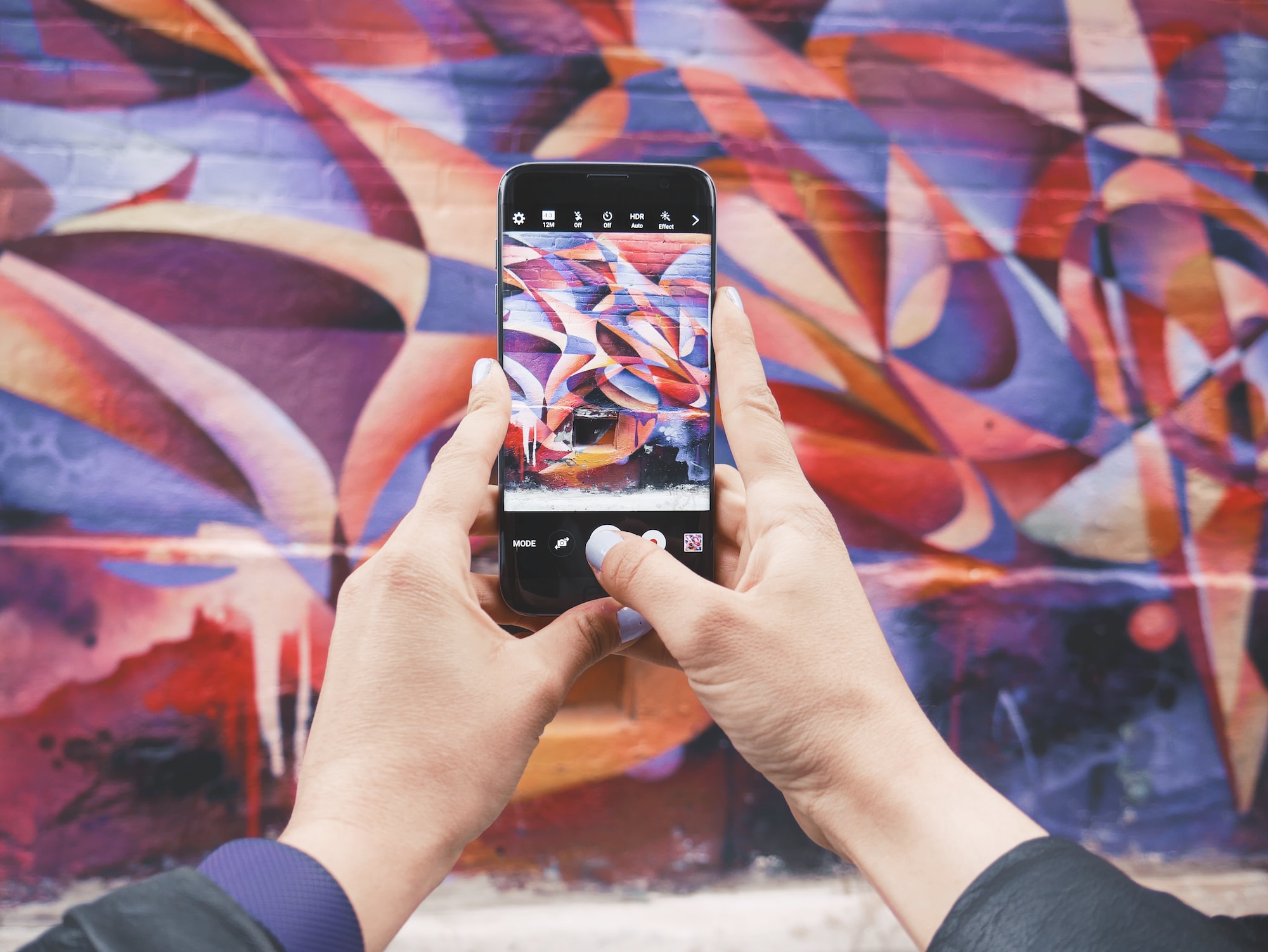25 Unmissable Influencer Marketing Trends In 2023 (And Beyond)
The influencer marketing landscape has undergone a considerable transformation since its inception, with brands and influencers navigating the perpetually evolving influencer industry. As the digital epoch ticks on, paradigm shifts in influencer marketing are on the horizon. To remain a vanguard, staying on top of the industry's shifts is critical. Let's delve Adtheory's list of 25 influencer marketing trends poised to redefine the industry in the coming years.
1. Micro-Influencers and Nano-Influencers Ascend the Ranks
Although mega-influencers boasting colossal followings retain a stronghold in the industry, brands increasingly court micro-influencers (10,000 - 100,000 followers) and nano-influencers (1,000 - 10,000 followers) for more bespoke and genuine engagement. These influencers excel in niche marketing campaigns due to their elevated engagement rates and devoted audiences.
2. The emergence of AI-Generated Influencers
Artificial intelligence disrupts influencer marketing by spawning virtual influencers. These AI-engineered personalities exude distinct attributes and captivate diverse demographics, granting brands a novel avenue to engage with their target audiences. As AI technology advances, anticipate a proliferation of virtual influencers imbued with heightened realism and relatability.
3. Long-Term Influencer Partnerships Flourish
Increasingly, brands eschew one-off campaigns to cultivate enduring relationships with influencers. These alliances facilitate more genuine storytelling and foster a robust synergy between the brand and the influencer. Consequently, this spurs trust and loyalty within the influencer's audience, yielding higher conversion rates and improved brand ROI.

4. The Dawning of Influencer-Driven eCommerce
The future heralds a surge of influencers embracing eCommerce by launching proprietary product lines or collaborating with brands to devise co-branded products. Influencers' unique positioning enables them to discern consumer preferences and develop products that resonate with their audience. This trend will pave the way for seamless content-commerce integration, obfuscating the boundaries between entertainment and shopping.
5. Augmented Reality and Virtual Reality Revolutionize Influencer Content
As AR and VR technologies become increasingly accessible, influencers will exploit these immersive platforms to generate engaging and interactive content. From virtual meet-and-greets to product demonstrations in a virtual store, these technologies will afford novel ways for influencers to connect with their audience and furnish engaging experiences.
6. Metrics and Accountability Take Center Stage
Influencer marketing's maturation will spur brands to demand heightened transparency and tangible results. This will spur a more pronounced focus on data-driven campaigns, holding influencers accountable for their collaborations' success. Sophisticated tracking methodologies and performance-based payment models will emerge in the future.

7. Diversification of Platforms and Formats
Influencers will continue to broaden their platforms and content formats to engage their audience. Influencers will embrace emerging technologies and platforms to stay relevant and maintain their audience's interest, from podcasts to short-form videos, live streaming, and more.
8. Emphasis on Authenticity and Transparency
Audiences are growing more discerning, necessitating a focus on authenticity and transparency in influencers' content and brand partnerships. This will involve disclosing sponsored content more clearly and ensuring collaborations align with their values and beliefs. Brands, too, must exercise greater selectivity in influencer partnerships to preserve credibility and trust.
9. The Ascent of Influencer Communities
Influencers will increasingly establish and nurture communities to foster deeper connections with their audience. This trend will see influencers creating dedicated spaces, such as private forums, Substacks, Facebook groups, or Discord channels, where their followers can engage with them and each other. By nurturing these communities, influencers can cultivate a robust sense of loyalty and trust with their audience, amplifying the power of their recommendations and partnerships.

10. Expansion of B2B Influencer Marketing
While influencer marketing has been primarily associated with B2C brands, the potential for B2B influencer marketing is increasingly evident. As B2B brands recognize the power of leveraging influencers to drive brand awareness and credibility, we can expect a surge in B2B influencer partnerships, particularly with industry experts and thought leaders.
11. Ethical and Sustainable Influencer Partnerships
As consumers grow more environmentally and socially conscious, brands and influencers must prioritize ethical and sustainable partnerships. This will involve carefully evaluating the impact of their collaborations on the environment, ensuring fair labor practices, and promoting diversity and inclusivity. Influencers championing these values will be more attractive to brands and consumers.
12. Personalization in Influencer Marketing
Influencer marketing will become more personalized, with brands employing AI data and analytics to tailor their influencer campaigns to specific audience segments. This will involve creating content that appeals to different demographics, interests, and behaviors, culminating in more targeted and effective campaigns. Influencers must also adapt their content and messaging to cater to their diverse and dynamically changing audiences' needs and preferences.

13. Integration of Influencer Marketing and Traditional Advertising
As influencer marketing enters the mainstream, we can expect greater integration with traditional advertising methods. This could involve influencers appearing in TV commercials, print ads, and other forms of traditional media. By combining influencer marketing's power with the reach and familiarity of traditional advertising, brands can create more impactful and memorable campaigns.
14. The Role of Voice Assistants and Smart Speakers in Influencer Marketing
As voice assistants and smart speakers continue to gain popularity, influencers will have to adapt their content strategies to cater to this growing audience. This may involve creating voice-activated content, such as podcasts or interactive stories, accessible through devices like Amazon Echo or Google Home. By embracing this technology, influencers can reach new audiences and expand their influence.
15. The Impact of Regulations on Influencer Marketing
As influencer marketing grows, expect to see more regulations governing the industry. Influencers and brands must adhere to advertising disclosures, privacy, and data usage guidelines. Compliance will be crucial for maintaining credibility among consumers craving authenticity. It's also imperative to avoid any penalties.
16. Expansion of Influencer Marketing into Niche Industries
Influencer marketing will continue to permeate niche industries, such as healthcare, finance, and technology, where influencers can use their expertise to provide valuable insights and recommendations. This expansion will create opportunities for highly specialized influencers to cater to specific markets.
17. The Rise of Influencer-Led Education
Expect to see more influencers leveraging their knowledge and expertise to offer online courses, workshops, and coaching. This trend will enable influencers to monetize their skills, help their audience gain valuable knowledge, and develop new skills.

18. The Adoption of Virtual and Hybrid Events
Influencers will increasingly participate in virtual and hybrid events, such as conferences, webinars, and panel discussions, to engage with their audience and share their expertise. These events offer greater accessibility and reach while maintaining the benefits of in-person interaction.
19. The Growing Importance of Social Causes
Influencers who support social causes and engage in activism will become more appealing to brands and consumers. Audiences value influencers who use their platforms to impact society and advocate for change positively.
20. Localization in Influencer Marketing
Brands will increasingly collaborate with local influencers to create more personalized and culturally relevant campaigns. Localization will help brands resonate with specific regional audiences and foster a stronger connection between the brand and its target market.

21. The Continuing Rise of Influencer Marketing Agencies
Expect a surge in specialized influencer marketing agencies that help brands identify, engage, and manage influencer partnerships. These agencies will offer end-to-end solutions, including strategy development, campaign execution, and performance analysis.
22. The Use of Cross-Platform Strategies
Influencers will adopt cross-platform strategies to diversify their reach and engage audiences across multiple channels. Influencers can maximize their impact and increase brand exposure by leveraging different platforms, and creating distinct, yet unified strategies for each.
23. Mental Health and Digital Wellbeing Awareness
Influencers will promote mental health and digital well-being by sharing their experiences, advocating for digital self-care, and encouraging healthy screen habits. This trend will foster more supportive and empathetic online communities.

24. Employee Advocacy as Influencer Marketing
Brands will increasingly recognize the value of employee advocacy and encourage their employees to act as brand ambassadors. Employees can provide authentic, behind-the-scenes perspectives and help humanize the brand.
25. The Evolution of Influencer Compensation Models
Influencer compensation models will evolve to include various methods like affiliate marketing, revenue sharing, and equity partnerships. This will allow influencers to benefit from the long-term success of their collaborations and incentivize them to create more effective campaigns.
Final Thoughts
Influencer marketing is experiencing considerable transformation, driven by these 25 notable trends (and others) shaping the industry's path. Success in this challenging landscape can be achieved by brands and influencers working closely together to observe these changes and adapt accordingly. Recognizing and embracing these trends is crucial for those aiming to impact the future of influencer marketing and remain competitive in the dynamic influencer industry.
